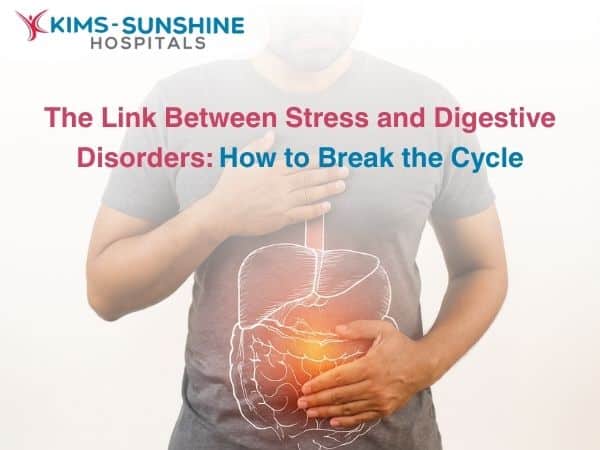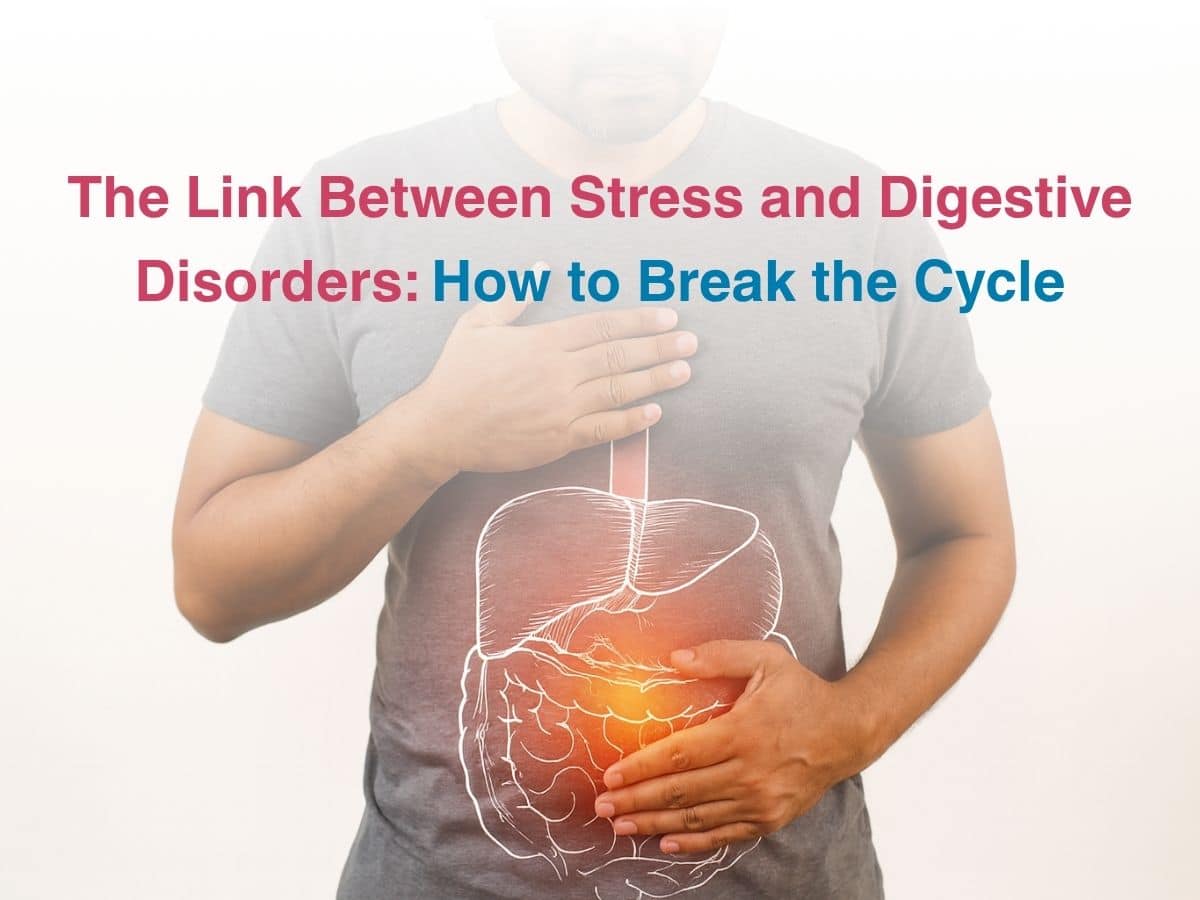
The Link between Stress and Digestive Disorders: How to Break the Cycle

Emotions experienced by us in various situations show effects on various organs in our body. Happiness, sadness, anxiety, anger – all are not only felt in the brain but also felt in other systems like chest, stomach etc. Have you ever felt anxious and experienced a strange kind of discomfort in your stomach? This kind of sensation happens due to the direct connection between the brain and the gut. The gut is also called the “second brain” in the body as it has the largest population of neurons outside your brain. Anger, fear or stress inhibits the digestive functioning as it shifts the body into fight or flight responses during these stressful stimuli. The central nervous system shuts down digestive functions, causing slow digestion, decreased gastric secretions etc.
What Is The Gut-Brain Axis?
Diseases from simple acidity to inflammatory bowel diseases are mostly linked to increased stress on the gut. India has a work culture with heightened work pressures that affect the gut. Studies show that almost 16% of the Indian adolescent population is affected with functional gastric disorders, while a large 4% of community prevalence IBS was observed. Stress can negatively impact the gut brain axis, disturbing digestive functions – causing abdominal pain, burning, bloating, altered bowel habits etc.
The gut-brain axis is hence, a two way communication system which involves nerves, hormones and the immune system to send and receive signals that influence mood and digestion. Vagus nerve is the major pathway for this connection that allows this to happen, in the body, with other components, like-
- The enteric nervous system (ENS), also known as gut-brain that controls swallowing, digestion and elimination.
- Neural pathways: this ENS signals the brain through central nervous system and vagus nerve
- Hormones are released into the body with co-operative action of both brain and gut that regulate hunger, fullness and stress.
- Gut microbes play an important role in producing neurotransmitters, as the gut is filled with trillions of good bacteria that influence the immune system and also affect the permeability of nutrients in the blood brain barrier.
How Stress Affects Digestive Health
The enteric nervous system can be affected with emotional and cognitive changes like stress. Stress is an acute warning to the haemostatic balance of the body; it has short and long term effects on every functioning system, affecting majorly the gastrointestinal tract. It disturbs the brain gut axis, leading a pathway for a broad range of gastrointestinal disorders like IBS, GERD, peptic ulcers etc. Mast cells translate the stress signals affecting the gut brain axis by releasing a wide range of neurotransmitters and pro-inflammatory cytokines that directly affect the gut physiology.
Stress has 6 main pathological effects on the gut:
- It alters the gastro intestinal motility
- Increases visceral perception- causing you to be hypersensitive to stimuli like hunger, pain or any other unpleasant sensation.
- Change in gastric secretions.
- Increased intestinal penetrability
- Negative effects on gastric mucosa and mucosal blood flow
- Negative effects on gut microbiome.
Symptoms Of Stress-Induced Stomach Issues
Common symptoms in affected individuals include-
- stomach pain
- cramps
- bloating
- diarrhoea alternating with constipation
- nausea
- indigestion
- hyperacidity or heart burn
- feeling of fullness or heaviness in stomach
- Gas
Foods That Soothe Stress-Related Gut Issues
Foods that are rich in probiotics like yogurt, curd, fermented batter, pickles or juices help in balancing gut microbes. Fibre rich fruits and vegetables like bananas, broccoli help in maintaining the gastric mucosa, as they are good prebiotics for gut bacteria to act on. Ginger helps in soothing gastric secretions and dark chocolate, rich in magnesium, helps to improve mood and reduces anxiety. All of these in turn help to balance gut functions.
Conclusion
Stress is an inevitable emotion or trigger and the main factor of gut disturbance. It can be felt at any age and any stage of life. When you understand the negative and impactful effects of stress, it is a good option to manage it beforehand rather than suffer consistently until it affects your gut. Considering practices like yoga and meditation can help to manage emotions and stress. Lifestyle changes include consumption of balanced dietary foods that are rich in fibre, omega 3’s and fermented foods. Adopting habits like regular physical exercise, consistent sleep, hydration, mindful eating and reduced intake of processed and unhealthy foods can balance gut disturbances.






